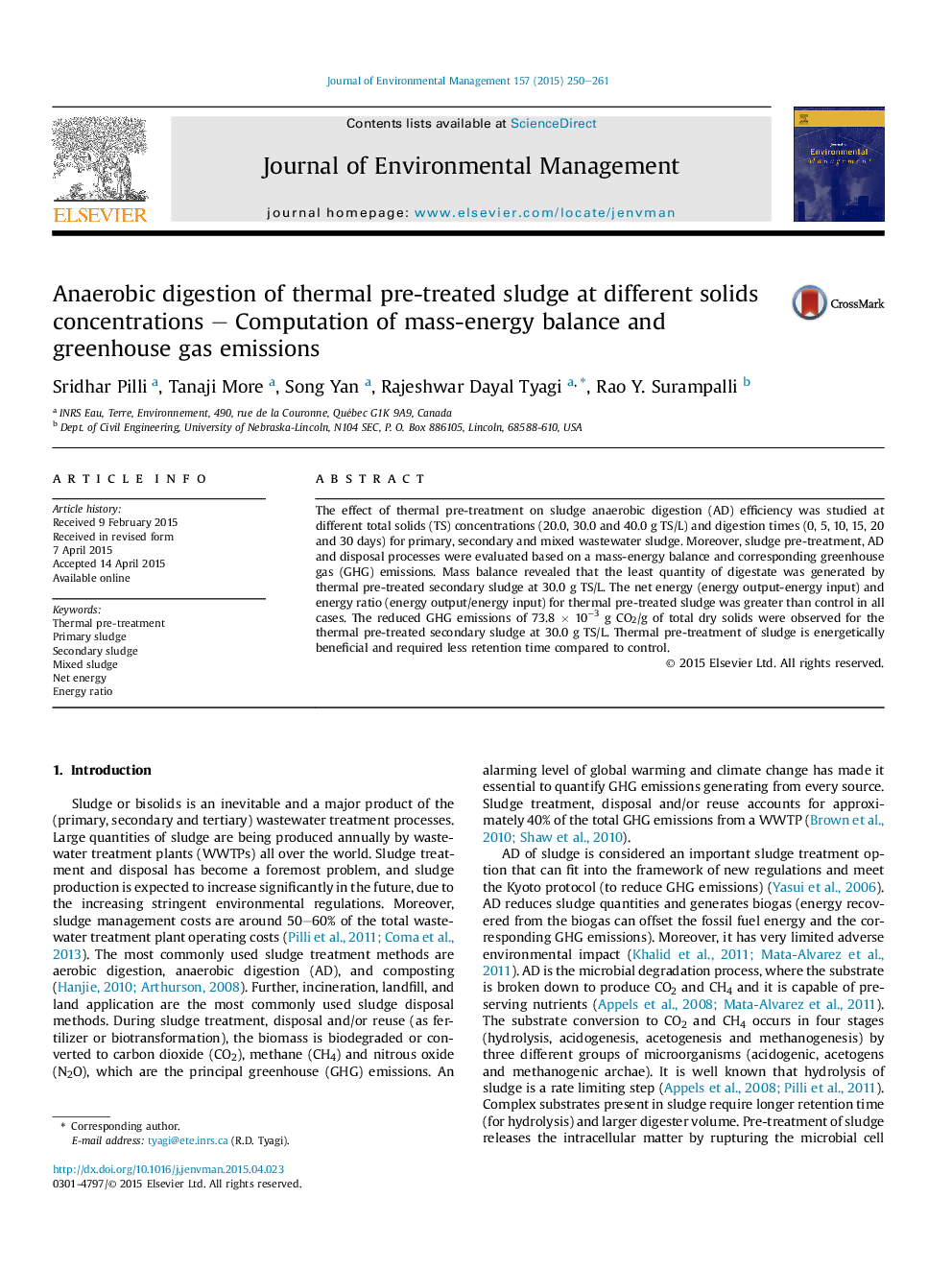| Article ID | Journal | Published Year | Pages | File Type |
|---|---|---|---|---|
| 7482274 | Journal of Environmental Management | 2015 | 12 Pages |
Abstract
The effect of thermal pre-treatment on sludge anaerobic digestion (AD) efficiency was studied at different total solids (TS) concentrations (20.0, 30.0 and 40.0 g TS/L) and digestion times (0, 5, 10, 15, 20 and 30 days) for primary, secondary and mixed wastewater sludge. Moreover, sludge pre-treatment, AD and disposal processes were evaluated based on a mass-energy balance and corresponding greenhouse gas (GHG) emissions. Mass balance revealed that the least quantity of digestate was generated by thermal pre-treated secondary sludge at 30.0 g TS/L. The net energy (energy output-energy input) and energy ratio (energy output/energy input) for thermal pre-treated sludge was greater than control in all cases. The reduced GHG emissions of 73.8 Ã 10â3 g CO2/g of total dry solids were observed for the thermal pre-treated secondary sludge at 30.0 g TS/L. Thermal pre-treatment of sludge is energetically beneficial and required less retention time compared to control.
Related Topics
Physical Sciences and Engineering
Energy
Renewable Energy, Sustainability and the Environment
Authors
Sridhar Pilli, Tanaji More, Song Yan, Rajeshwar Dayal Tyagi, Rao Y. Surampalli,
